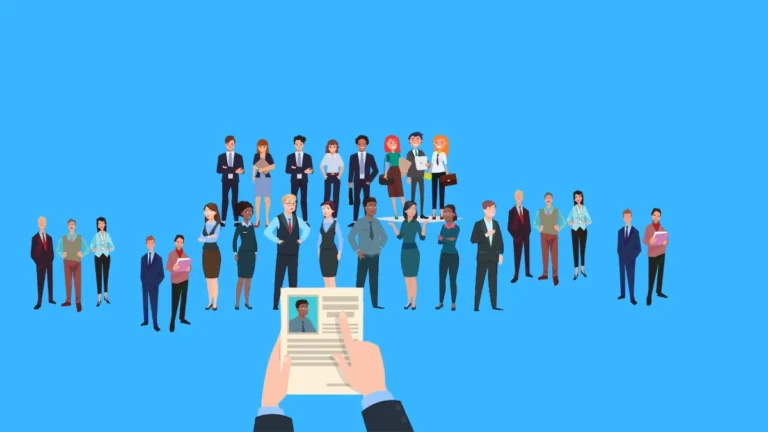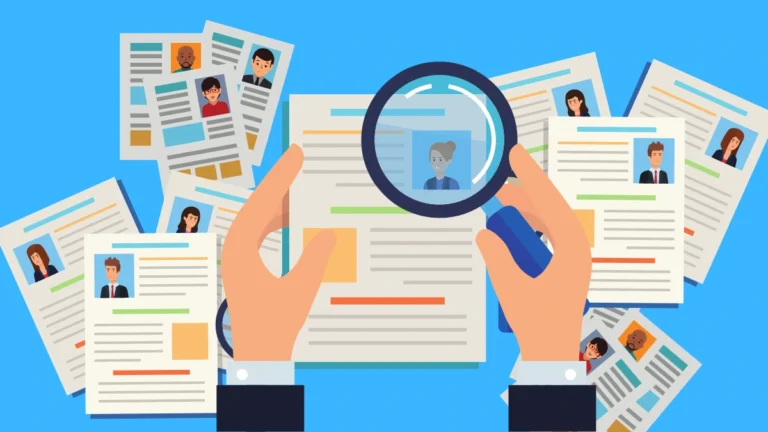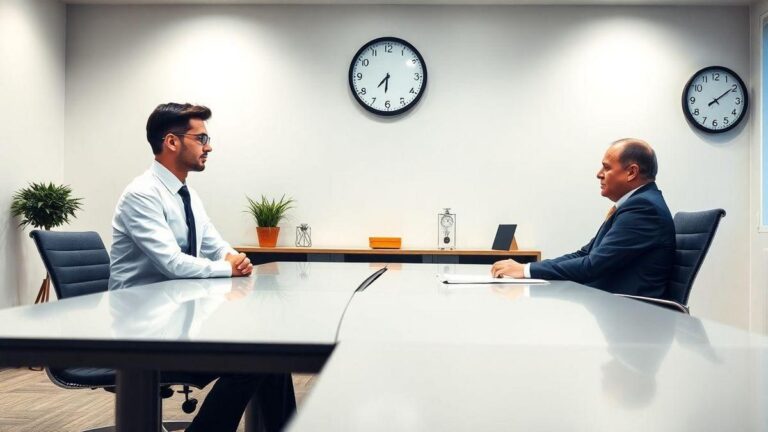Group dynamics: how to prepare and avoid getting stuck is key to successful recruitment. In this article, you will discover how team cohesion impacts hiring decisions and why candidate interaction matters. You’ll learn to foster strong group dynamics to make better choices. We’ll explore the importance of diverse perspectives and how to adapt your communication style with different team members. Finally, we’ll show you effective onboarding techniques to welcome new hires and build strong relationships from day one. Get ready to transform your hiring process!
Understanding Group Dynamics in Recruitment
The Role of Team Cohesion
When you think about hiring, team cohesion is crucial. It’s like the glue that holds a group together. When team members work well together, they create a positive atmosphere, making the workplace more enjoyable and productive. You want candidates who can fit in and contribute to this harmony.
Here’s why team cohesion matters:
- Better Communication: A cohesive team communicates openly, helping everyone feel comfortable sharing ideas.
- Increased Productivity: When everyone gets along, tasks get done faster and with better quality.
- Lower Turnover: Happy teams tend to keep their members longer, saving you time and money on recruitment.
Importance of Candidate Interaction
Candidate interaction is all about how potential hires connect with your team during the recruitment process. This is a key part of assessing if they will fit in. You want to see how they interact with current employees.
Consider these points:
- Group Interviews: These can show how well candidates work with others, revealing their teamwork skills in action.
- Social Events: Hosting casual meet-and-greets allows candidates to relax and show their true selves.
- Feedback from Team Members: After interactions, ask your team for their thoughts. They can provide valuable insights into a candidate’s fit.
How Team Cohesion Affects Hiring
Team cohesion can make or break your hiring process. If your team is united and positive, candidates will notice. They’ll feel the energy and want to be a part of it.
Here’s a simple table to illustrate this:
| Team Cohesion | Effect on Hiring |
|---|---|
| High | Attracts top talent; candidates feel welcomed |
| Medium | Candidates may hesitate; unsure about fit |
| Low | Top candidates may avoid your company; negative atmosphere |
When team cohesion is high, it creates a welcoming environment, making candidates more likely to feel excited about the opportunity. Conversely, if cohesion is lacking, candidates might sense tension and choose to look elsewhere.
Preparing for Collaborative Hiring
Steps to Foster Group Dynamics
To make collaborative hiring successful, you need to foster group dynamics. Here are some steps to help you get started:
- Build Trust: Encourage open communication among team members. When everyone feels safe to express their thoughts, it creates a positive atmosphere.
- Define Roles: Clearly outline each person’s role in the hiring process to avoid confusion and ensure everyone knows what to do.
- Encourage Participation: Invite all team members to share their opinions, making them feel valued and bringing in diverse perspectives.
- Facilitate Discussions: Use brainstorming sessions to discuss candidates, sparking new ideas and insights that may not come up in one-on-one meetings.
Setting Clear Goals for the Team
Setting clear goals is crucial for a successful hiring process. Here’s how you can do it:
- Identify Needs: Start by understanding what skills and qualities you need in a candidate to guide your discussions and decisions.
- Set a Timeline: Create a timeline for the hiring process to keep the team focused and on track.
- Measure Success: Decide how you will evaluate the success of your hiring process, based on the quality of hires or team satisfaction.
| Goal | Description | Measurement |
|---|---|---|
| Identify Needs | Understand required skills and qualities | List of skills needed |
| Set a Timeline | Create a schedule for the hiring process | Timeline chart |
| Measure Success | Evaluate the effectiveness of hires | Feedback from team members |
Benefits of Collaborative Hiring in Recruitment
Collaborative hiring has several benefits. Here are a few:
- Diverse Perspectives: Different team members bring varied viewpoints, leading to better decision-making.
- Increased Buy-In: When everyone is involved, team members are more likely to support the final hiring decision.
- Better Fit: Collaborative hiring helps find candidates who fit well with the team culture.
In summary, when you focus on group dynamics: how to prepare and avoid getting stuck and set clear goals, you pave the way for a successful collaborative hiring process. Embrace the journey, and you’ll find that working together not only enhances your hiring efforts but also strengthens your team!
Social Influence in Recruitment
How Group Opinions Shape Decisions
When you’re hiring, group opinions can play a big role. Imagine you’re in a room full of people discussing a candidate. Everyone shares their thoughts, and suddenly, one person’s opinion can sway the entire group. This is often called social influence. It means that what others think can affect your own choices.
For example, if a team member strongly feels that a candidate is a great fit, you might start to see things their way. This can be helpful, but it can also lead to mistakes. It’s essential to be aware of how group opinions can shape your decisions.
Recognizing Bias in Group Dynamics
Bias often creeps into group discussions. Sometimes, people might lean towards candidates who are similar to them. This is known as similarity bias. It can cloud your judgment and lead to unfair hiring practices.
To spot bias, pay attention to these signs:
- Repetitive Opinions: If one person keeps dominating the conversation.
- Groupthink: When everyone agrees without questioning.
- Exclusion: If certain candidates are ignored based on personal preferences.
Recognizing these patterns can help you steer clear of bias.
Strategies to Minimize Bias in Hiring
To tackle bias head-on, try these effective strategies:
| Strategy | Description |
|---|---|
| Diverse Hiring Panels | Include people from different backgrounds. |
| Structured Interviews | Ask all candidates the same questions. |
| Blind Resumes | Remove names and other identifiers from resumes. |
| Feedback Loops | Encourage team members to share their thoughts. |
Using these strategies can help create a fairer hiring process. You want to make sure that you’re choosing the best candidate based on skills and fit, not personal biases.
Enhancing Group Decision-Making
Techniques for Effective Team Discussions
When you gather a team for discussions, clear communication is key. Here are some techniques to boost your team’s decision-making:
- Set a Clear Agenda: Before the meeting, outline what you want to discuss. This keeps everyone focused.
- Encourage Participation: Make it a point to invite everyone to share their thoughts. You can do this by asking questions like, “What do you think, Sarah?”
- Active Listening: Show that you value each person’s input by listening carefully. Nod or give feedback to let them know you are engaged.
- Use Visual Aids: Charts or slides can help clarify points, making complex ideas easier to understand.
Importance of Diverse Perspectives
Diversity in your team brings different ideas to the table. This is crucial for making better decisions. When people from various backgrounds share their views, it leads to:
- Creative Solutions: Different experiences lead to unique ideas that can solve problems.
- Reduced Bias: A varied team can challenge assumptions and prevent groupthink.
- Better Understanding: Teams that reflect the community can better relate to clients and customers.
Tools to Improve Decision-Making in Recruitment
To streamline your recruitment process, consider using these tools:
| Tool | Purpose |
|---|---|
| Applicant Tracking System (ATS) | Organizes resumes and applications for easy review. |
| Collaboration Software | Helps team members discuss candidates in real-time. |
| Feedback Tools | Collects input from team members on candidates. |
By using these tools, you can make your recruitment more efficient and informed.
Recruitment Communication Styles
Adapting to Different Team Members
In recruitment, communication is key. You need to adjust your style based on who you are talking to. Different team members have different needs. Here are some tips to help you adapt:
- Listen Actively: Pay attention to what others say. This shows you care.
- Use Clear Language: Avoid jargon. Speak in a way everyone understands.
- Be Respectful: Treat everyone with kindness. This builds trust.
By adapting your style, you can connect better with your team and make the recruitment process smoother.
Encouraging Open Dialogue
Open dialogue is vital in recruitment. It helps everyone feel valued and heard. Here’s how to encourage it:
- Create a Safe Space: Let team members know it’s okay to share their thoughts.
- Ask Questions: This shows you are interested in their opinions.
- Provide Feedback: Share your thoughts on their ideas. This keeps the conversation going.
When you promote open dialogue, you build a stronger team. Everyone feels like they belong.
The Impact of Communication on Group Dynamics
Good communication shapes group dynamics. Here’s how it works:
| Aspect | Positive Impact | Negative Impact |
|---|---|---|
| Trust | Builds strong relationships | Creates suspicion and doubt |
| Collaboration | Encourages teamwork | Leads to misunderstandings |
| Engagement | Keeps everyone involved | Causes disengagement |
When communication is clear and open, the group functions better. You avoid getting stuck in misunderstandings and conflicts.
Onboarding Team Dynamics
Integrating New Hires into the Team
When you bring new hires into your team, think of it like planting a new seed in your garden. You want to help it grow strong and healthy. Start by introducing them to everyone. A simple welcome lunch can break the ice. Share the team’s goals and values, so they feel part of something bigger right away.
Here are some steps you can take to help with integration:
- Assign a Buddy: Pair new hires with a team member who can answer questions and show them the ropes.
- Set Clear Expectations: Discuss roles and responsibilities early to avoid confusion later.
- Encourage Questions: Make it clear that it’s okay to ask questions, fostering a supportive environment.
Building Relationships from Day One
Relationships are the backbone of any team. From day one, you should focus on building connections. Encourage team-building activities that allow everyone to interact in a relaxed setting.
Consider these activities:
- Icebreaker Games: Simple games can help everyone loosen up and find common ground.
- Team Projects: Assign a small project that requires collaboration, helping new hires get to know their teammates while working towards a common goal.
- Regular Check-Ins: Schedule one-on-one meetings to discuss how they are settling in, showing you care about their experience.
The Role of Onboarding in Group Dynamics
Onboarding plays a crucial role in group dynamics. It sets the tone for how new hires will interact with others. A smooth onboarding process can prevent misunderstandings and build trust among team members.
Here’s how onboarding influences group dynamics:
| Aspect | Impact on Group Dynamics |
|---|---|
| Clear Communication | Reduces confusion and promotes teamwork. |
| Shared Goals | Aligns everyone towards a common purpose. |
| Trust Building | Fosters a sense of belonging and safety. |
When you focus on effective onboarding, you help new hires feel like they belong. This can lead to a more cohesive and productive team.


